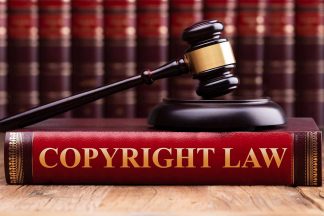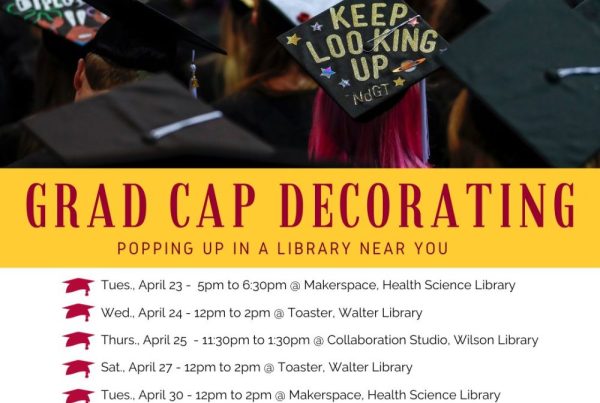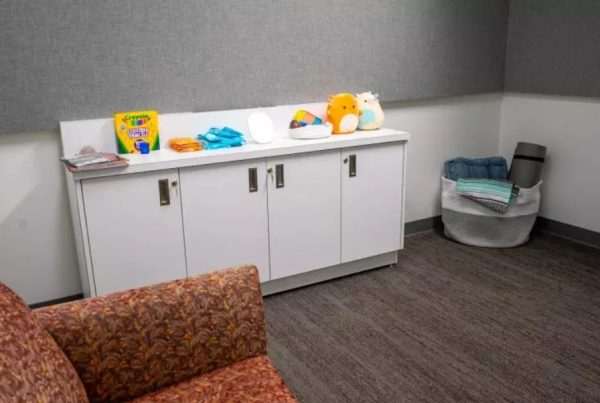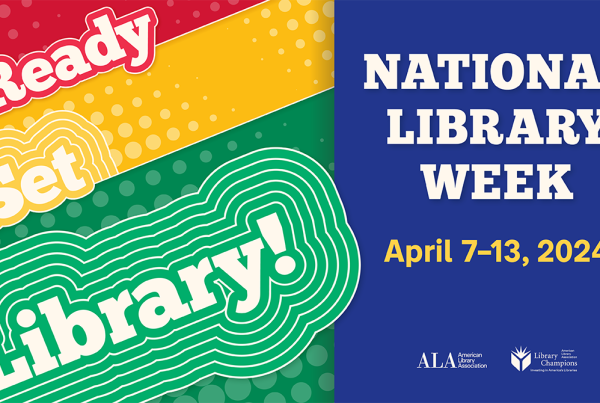By Allison Campbell-Jensen
 Graduate students preparing their thesis or dissertation for publication at the University of Minnesota often contact Nancy Sims, the Libraries copyright specialist — a few times in tears.
Graduate students preparing their thesis or dissertation for publication at the University of Minnesota often contact Nancy Sims, the Libraries copyright specialist — a few times in tears.
Some have discovered only as they approached the final steps of the process, that they did not control the copyright on an article they previously published that they intended to include in their thesis or dissertation. Some had to re-write portions of the thesis or dissertation or figure out another option — “a tragic outcome,” Sims says.
In her workshop, “The Fault in our Publication Agreements,” Sims helps grad students avoid such trouble. She is an attorney and a librarian who has been at the University for 11 years; this article is a brief synopsis of her workshop.
A student in the College of Design, who interfaces with the College of Science and Engineering, found the workshop to be very helpful. That is because, even while being encouraged to publish in academic journals, she received conflicting advice from her advisors. “I could never get a straight answer” on how copyright issues in journals and her dissertation might overlap, she said. “It was great to get some clarity.”
Making one’s way in academic publishing

Nancy Sims
To avoid a “tragic outcome,” grad students may either need to be selective about the journals in which they choose to publish, Sims says, or be careful about controlling their copyright.
Any creative work is copyrightable, so people may already have hold copyrights they are not aware of. (That said, legally, no one can own copyright on a range of items, from ideas to discoveries, although one can have credit as an author.)
Among the things that can affect one’s copyright, Sims says, are employment — although at the University, scholars and students usually own the copyright to their academic work — if one has been commissioned to produce a work, or because a collaboration gives each collaborator joint authorship. In particular, contracts can affect what you own. While publishers need some rights to publish, you may be able to negotiate a contract with a “non-exclusive” right, shared rights, or rights that allow you to retain copyright after publication.
Graduate students also may pick a journal that meets their academic and professional goals and also allows authors to reuse their own work. Sims offered two sources to find such journals: Sherpa Romeo, which offers publisher copyright policies from journals around the world, and the Directory of Open Access Journals. She also suggests checking publishers’ websites to understand the details of their policies.
Careful what you sign
Graduate students, of course, study in many disciplines and have individual situations. And she notes that a one-hour workshop can only brush the surface of a complicated subject.
Reminding students that they can always consult with library staff members, Sims’ final workshop advice is: “Don’t agree to a publishing agreement during grad school without knowing how it will affect your thesis/dissertation plans.”
For more information
If you would like more information about copyright, please visit our Copyright Services website.




